
Filter News
Area of Research
- Biology and Environment (48)
- Biology and Soft Matter (1)
- Clean Energy (47)
- Computational Biology (2)
- Computational Engineering (2)
- Computer Science (2)
- Electricity and Smart Grid (1)
- Functional Materials for Energy (1)
- Fusion and Fission (3)
- Materials (16)
- Materials for Computing (1)
- Mathematics (1)
- National Security (6)
- Neutron Science (6)
- Nuclear Science and Technology (5)
- Supercomputing (42)
- Transportation Systems (1)
News Topics
- (-) Clean Water (29)
- (-) Decarbonization (79)
- (-) High-Performance Computing (84)
- (-) Molten Salt (8)
- 3-D Printing/Advanced Manufacturing (121)
- Advanced Reactors (34)
- Artificial Intelligence (91)
- Big Data (53)
- Bioenergy (91)
- Biology (98)
- Biomedical (58)
- Biotechnology (22)
- Buildings (57)
- Chemical Sciences (63)
- Climate Change (99)
- Composites (26)
- Computer Science (187)
- Coronavirus (46)
- Critical Materials (26)
- Cybersecurity (35)
- Education (4)
- Element Discovery (1)
- Emergency (2)
- Energy Storage (108)
- Environment (194)
- Exascale Computing (37)
- Fossil Energy (5)
- Frontier (42)
- Fusion (54)
- Grid (62)
- Hydropower (11)
- Irradiation (3)
- Isotopes (53)
- ITER (7)
- Machine Learning (47)
- Materials (144)
- Materials Science (140)
- Mathematics (7)
- Mercury (12)
- Microelectronics (3)
- Microscopy (51)
- Nanotechnology (60)
- National Security (61)
- Net Zero (13)
- Neutron Science (131)
- Nuclear Energy (108)
- Partnerships (44)
- Physics (61)
- Polymers (33)
- Quantum Computing (34)
- Quantum Science (69)
- Renewable Energy (2)
- Security (24)
- Simulation (47)
- Software (1)
- Space Exploration (25)
- Statistics (3)
- Summit (57)
- Sustainable Energy (125)
- Transformational Challenge Reactor (7)
- Transportation (97)
Media Contacts
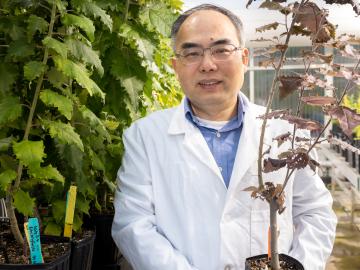
Scientist Xiaohan Yang’s research at the Department of Energy’s Oak Ridge National Laboratory focuses on transforming plants to make them better sources of renewable energy and carbon storage.
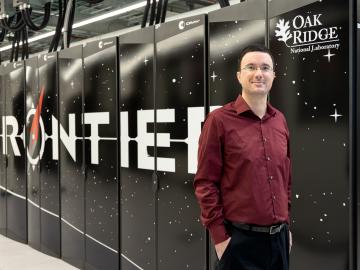
The Exascale Small Modular Reactor effort, or ExaSMR, is a software stack developed over seven years under the Department of Energy’s Exascale Computing Project to produce the highest-resolution simulations of nuclear reactor systems to date. Now, ExaSMR has been nominated for a 2023 Gordon Bell Prize by the Association for Computing Machinery and is one of six finalists for the annual award, which honors outstanding achievements in high-performance computing from a variety of scientific domains.

The Department of Energy’s Office of Science has selected three ORNL research teams to receive funding through DOE’s new Biopreparedness Research Virtual Environment initiative.
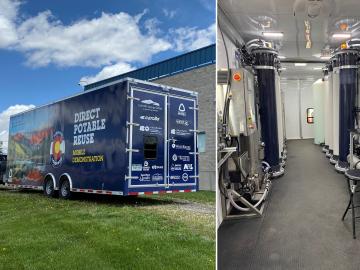
Researchers at ORNL are developing advanced automation techniques for desalination and water treatment plants, enabling them to save energy while providing affordable drinking water to small, parched communities without high-quality water supplies.
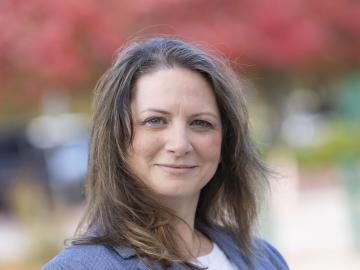
Michelle Kidder, a senior R&D staff scientist at ORNL, has received the American Chemical Society’s Energy and Fuels Division’s Mid-Career Award for sustained and distinguished contributions to the field of energy and fuel chemistry.
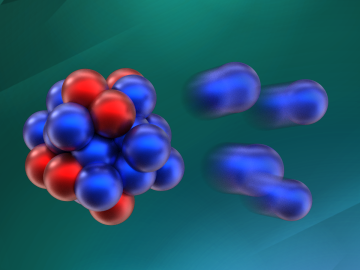
Rare isotope oxygen-28 has been determined to be "barely unbound" by experiments led by researchers at the Tokyo Institute of Technology and by computer simulations conducted at ORNL. The findings from this first-ever observation of 28O answer a longstanding question in nuclear physics: can you get bound isotopes in a very neutron-rich region of the nuclear chart, where instability and radioactivity are the norm?
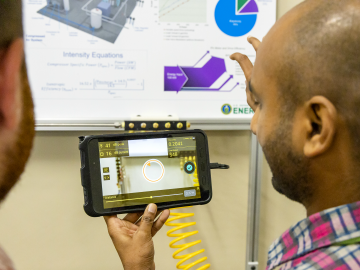
ORNL researchers have developed a training camp to help manufacturing industries reduce energy-related carbon dioxide emissions and improve cost savings.
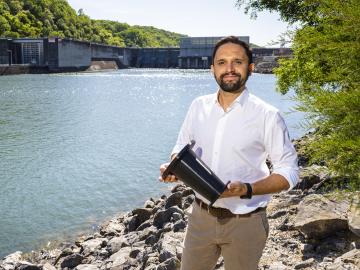
Mirko Musa spent his childhood zigzagging his bike along the Po River. The Po, Italy’s longest river, cuts through a lush valley of grain and vegetable fields, which look like a green and gold ocean spreading out from the river’s banks.
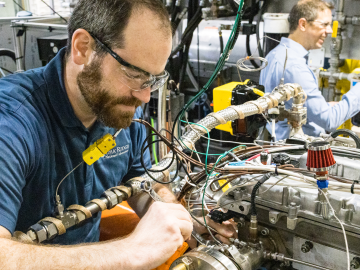
ORNL, the Department of Energy’s largest multidisciplinary laboratory, and Fairbanks Morse Defense, a portfolio company of Arcline Investment Management, have entered into a Memorandum of Understanding to collaborate on the development and integration of alternative fuel technologies aimed at reducing the marine engine’s reliance on fossil fuels.
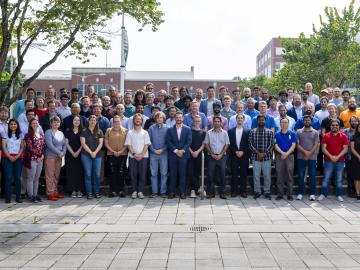
Hosted by the Quantum Computing Institute and the Oak Ridge Leadership Computing Facility, the fourth annual event brought together over 100 attendees to discuss the latest developments in quantum computing and to learn about results from projects supported by the OLCF’s Quantum Computing User Program.


